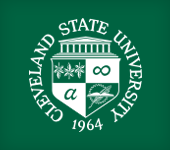About Physics, Ms in Cleveland State University
AREAS OF STUDY
Optics and Materials
Medical Physics
Optics and Medical Imaging
INTRODUCTION
Currently, there is tremendous growth in optics, condensed matter, and medical physics caused by rapid developments in the fields of superconductivity, electro optic materials, optical, acoustical, and NMR imaging, semiconductor devices, tomography, holography, and image-processing. The Physics Department of Cleveland State University offers an MS degree in physics, with emphasis on optics and condensed matter physics, or on medical physics, designed for applied scientists and engineers who wish to develop competence in these rapidly advancing fields. In 2005, the American Physical Society classified the Master of Science in Physics program at Cleveland State in the "strongest professional master's degree program" category. In fact, CSU's MS in Physics program is ranked 5th in the country by the American Institute of Physics according to its April 2014 report on largest physics master's-granting departments in the US.
CURRENT RESEARCH
Macromolecular Crystallography: X-Ray studies of crystallized biologically and chemically interesting molecules, for designing molecules with specific biological activities for developing drugs.
Medical Imaging Physics: Currently radiation dosimetry in medical imaging is largely patient-generic. Methods are being developed to assess organ dose for individual patients. Monte Carlo techniques are used to simulate the process of radiation transport in the imaging device and the patient anatomy. A large number of virtual procedures are being performed to provide a fundamental understanding of how organ dose in medical imaging depends on patient and device characteristics.
Experimental Biophysics: Epithelial mechanosensation and mechanotransduction; fluid flow sensing by the primary cilium. Methods include: perfused tissue culture, live cell imaging, optical trapping, electrophysiology, molecular biology.
Experimental Solid-State Physics: Current topics in the electronic properties and possible applications of novel materials include intercalated graphite fibers, conductor-insulator composites, and thin-film materials. Most measurements involve low-temperature and/or high-pressure techniques.
Experimental Optics: Laser spectroscopy is being used to study diffusional processes. Presently, aggregation processes that result in the formation of fractal aggregates and phase transitions in liquid mixtures and micro emulsions are under investigation. The optical properties of various polymer materials also are being studied using laser techniques.
Optoelectronics: Investigation of basic physics and applications of transparent electronic materials.
Statistical Physics: Phase transitions in liquid mixtures, glasses, polymers, superconductors, and magnets are being studied by applying modern techniques such as the renormalization group. Statistical physics methods are applied to cognitive science, health sciences, and polymer processing.
Cleveland State University Cost of Attendance
The following is a budget estimate for international students studying in the United States for the forthcoming academic year. If you are a potential student at the institute, it is highly recommended that you keep track of the costs listed below and plan ahead of time for your stay.
| Expenses |
Bachelor’s Degree |
Master’s Degree |
Doctoral Degree |
| Tuition & Fees |
21,375 |
23,590 |
17,262 |
| Room/Board |
16,800 |
16,800 |
16,800 |
| Books & Supplies |
800 |
800 |
800 |
| Health Insurance |
3,523 |
3,523 |
3,523 |
| Transportation |
1,770 |
1,770 |
1,770 |
| Personal Expenses |
1,800 |
1,800 |
1,800 |
| Total Estimated Cost |
46,068 |
48,283 |
41,956 |
